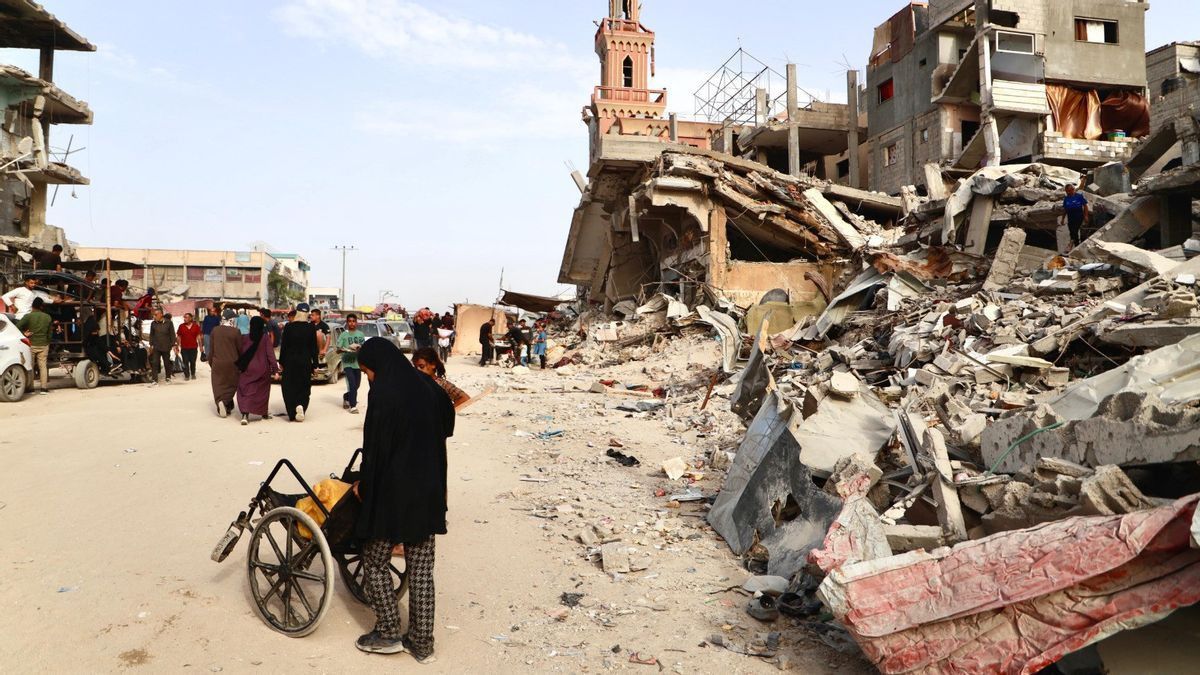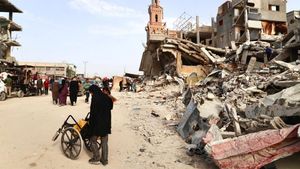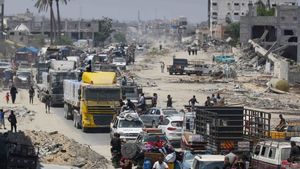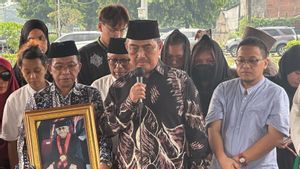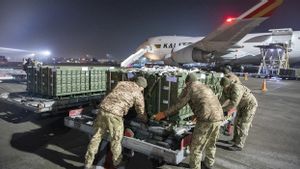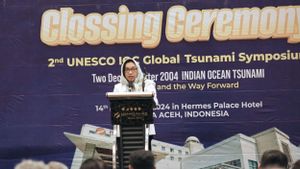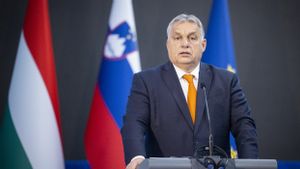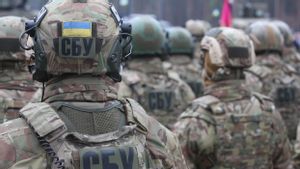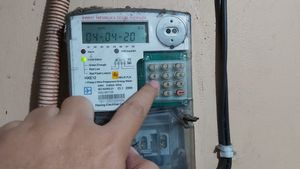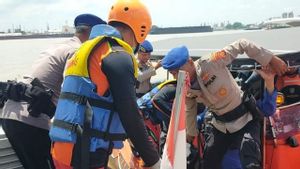JAKARTA - Hamas is waiting for a response from Israel on its ceasefire proposal.
This was conveyed by two officials from the militant Islam group on Sunday, July 7, or five days after receiving an important share of the US plan aimed at ending the nine-month war in Gaza.
"We have submitted our response to the mediators and are waiting for an occupational response," one of the two Hamas officials told Reuters.
The official asked not to be named.
A three-phase plan for the Palestinian enclave was proposed in late May by US President Joe Biden and mediated by Qatar and Egypt.
It aims to end the war and free about 120 Israeli hostages detained by Hamas.
Another Palestinian official, familiar with the ceasefire discussions, said Israel was in talks with Qatar.
"They have discussed with them about Hamas' response and they promised to give them an Israeli response in a few days," the official, who asked not to be named, told Reuters.
Israeli Prime Minister Benjamin Netanyahu has said negotiations will continue this week but have not provided a detailed timeline.
Hamas, who controls Gaza, has dropped the main demand that Israel first commit to a permanent ceasefire before signing the agreement.
Instead, it said it would allow negotiations to reach it during the first phase of six weeks, a Hamas source told Reuters on Saturday on condition of anonymity as the talks were private.
A Palestinian official close to peace efforts said the proposal could lead to a framework agreement if adopted by Israel and would end the war.
US Central Intelligence Agency Director William Burns will travel to Qatar this week for negotiations, said a source familiar with the matter.
The conflict was sparked nine months ago in October when Hamas-led fighters attacked southern Israel from Gaza, killing 1,200 people and holding about 250 hostages hostage in the worst attack in Israeli history, according to Israel's official figures.
More than 38,000 Palestinians have been killed in Israeli military attacks, according to Gaza health officials, and coastal enclaves have largely been in ruins.
The UN agency for Palestine, UNRWA, said the situation was increasingly tragic, saying in a post on X, "the family continues to face forced transfer, massive destruction, and persistent fear. Important supplies are lacking, heat is unbearable, the disease is spreading".
SEE ALSO:
The English, Chinese, Japanese, Arabic, and French versions are automatically generated by the AI. So there may still be inaccuracies in translating, please always see Indonesian as our main language. (system supported by DigitalSiber.id)
Most Popular Tags
#Prabowo Subianto #golkar #Pilkada Dki #online gambling #Mount Lewotobi malePopular
16 November 2024, 03:00
16 November 2024, 04:00
16 November 2024, 05:00
16 November 2024, 04:47
